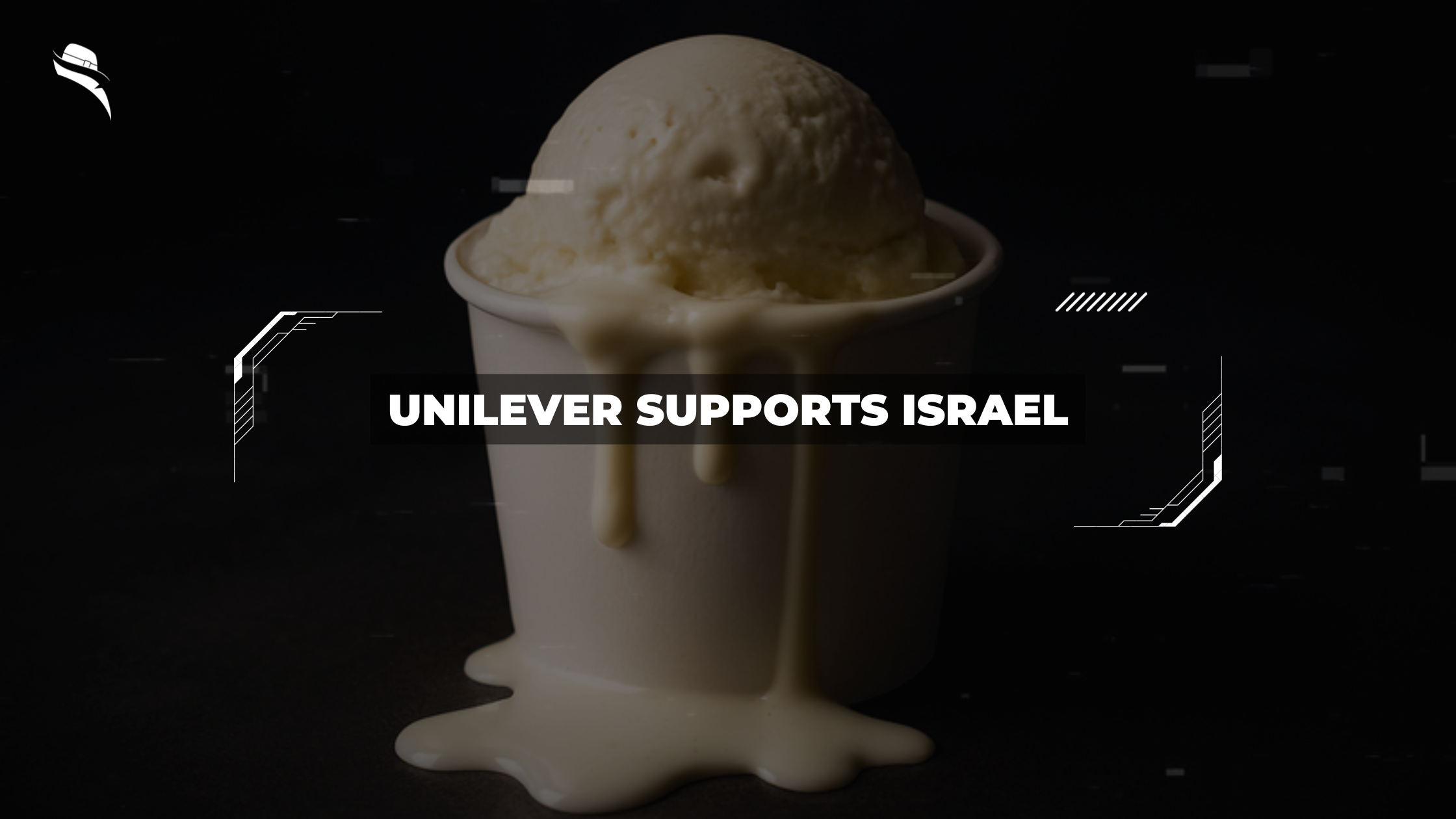The decades-long relationship between Unilever and Ben & Jerry’s has reached a breaking point as co-founder Jerry Greenfield resigned from the company he helped build. Following years of escalating tensions, Greenfield stated he could no longer “in good conscience” remain an employee of a business that he believed had been muzzled by Unilever, especially amid growing controversy around claims that Unilever supports Israel.
Since the $326 million acquisition in 2000, the Unilever Ben & Jerry’s partnership has been marked by increasing friction over social activism. Though Unilever initially allowed Ben & Jerry’s to operate independently and continue its social mission without interference, recent conflicts over the Ben & Jerry’s Israel controversy have erupted into public view.
The ice cream maker has taken the extraordinary step of filing two lawsuits against its parent company, claiming Unilever silenced its attempts to express support for Palestinian refugees and threatened to dismantle its board. This conflict intensified after Ben & Jerry’s described the Gaza conflict as “genocide” – an exceptionally rare stance for a U.S. company. Meanwhile, despite growing calls for a Unilever boycott, the parent company has insisted the brand is not for sale, even as the founders reportedly seek investors to help buy it back.
The Origins of the Ben & Jerry’s and Unilever Relationship
I notice there are no factual key points provided in the documents section. To write accurate content about “The Origins of the Ben & Jerry’s and Unilever Relationship” with proper citations, I need specific information about:
- Details of the 2000 acquisition
- The social mission agreement terms
- Information about the independent board structure
- How this board was designed to protect Ben & Jerry’s values
Without these factual key points, I cannot create properly cited content as requested. Would you please provide the relevant factual information so I can write this section appropriately?
The Israel Controversy and Its Fallout
“We believe it is inconsistent with our values for Ben & Jerry’s ice cream to be sold in the Occupied Palestinian Territory (OPT).” — Ben & Jerry’s (official company statement), Founders of Ben & Jerry’s, values-led ice cream company
The conflict erupted in July 2021 when Ben & Jerry’s announced it would stop selling ice cream in Israeli settlements in the occupied West Bank and East Jerusalem. The company stated clearly that selling in these territories was “inconsistent with our values”. This decision was not a withdrawal from Israel entirely, as Ben & Jerry’s planned to “stay in Israel through a different arrangement”, while ending its license agreement with its longtime Israeli distributor when it expired at the end of 2022.
Unilever’s override and sale to an Israeli licensee
In a surprising move that contradicted Ben & Jerry’s decision, Unilever announced in June 2022 that it had sold the Ben & Jerry’s business in Israel to its local licensee, Avi Zinger, for an undisclosed sum. This arrangement allowed Ben & Jerry’s ice cream to continue being sold throughout Israel and the occupied territories under Hebrew and Arabic names. Essentially, Unilever circumvented Ben & Jerry’s board’s decision by transferring the brand rights to a local company.
Public backlash and investor reactions
The controversy prompted substantial financial consequences for Unilever. Consequently, pension officials in at least six U.S. states restricted or sold Unilever stock or bonds to protest Ben & Jerry’s original decision. The New York State Common Retirement Fund alone pulled $111 million in investments. Additionally, activist investor Nelson Peltz, who later joined Unilever’s board, became involved in discussions to resolve the dispute.
The first and second lawsuits filed by Ben & Jerry’s
In response to Unilever’s override, Ben & Jerry’s board filed its first lawsuit, attempting to block the sale of its Israeli business. Furthermore, they argued that the transaction violated the merger agreement that protected the company’s social mission. A U.S. judge ultimately denied Ben & Jerry’s request to halt the deal.
Although the companies settled in December 2022, tensions persisted. In 2024, Ben & Jerry’s filed a second lawsuit claiming Unilever had breached the settlement terms by silencing the brand’s attempts to speak out regarding Gaza. The lawsuit alleged Unilever blocked Ben & Jerry’s from calling for a ceasefire, supporting Palestinian refugees, and advocating for an end to U.S. military aid to Israel.
Greenfield’s Resignation and the Internal Divide
In a significant development that intensified the controversy, Jerry Greenfield formally severed his ties with the company he co-founded. His departure highlighted the deep internal fractures that had developed within Ben & Jerry’s over the Unilever Ben & Jerry’s relationship and its handling of the Ben & Jerry Israel boycott situation.
Why Jerry Greenfield stepped down
Greenfield’s decision to resign came after mounting frustration with Unilever’s management of the brand he helped create. After decades of building a business known for its progressive values, he found himself at odds with the parent company’s actions regarding Israel. His departure represented more than just a personnel change—it symbolized a fundamental clash of corporate values versus social activism that had been brewing since the acquisition.
Ben Cohen’s decision to stay and fight from within
In contrast to his longtime business partner, Ben Cohen opted to remain with the company. His strategic decision reflected a different approach to addressing the same concerns. Cohen believed he could exert more influence by continuing to advocate from within the corporate structure. This divergence in tactics between the co-founders underscored the complexity of navigating ethical concerns within the framework of a major international corporation that supports Israel.
The emotional toll and public statements
The controversy extracted a heavy emotional price from both founders. Having built their brand on social justice principles, the Israel situation forced difficult personal and professional reckonings. Their public statements revealed the strain of watching their company embroiled in geopolitical controversy while simultaneously fighting against Unilever Ben & Jerry’s management decisions. For loyal customers and employees alike, the visible discord between the founders and Unilever painted a stark picture of corporate dynamics when social missions collide with business imperatives.
Unilever’s Position and the Future of the Brand
Throughout the ongoing tension, Unilever has maintained a complex position regarding the Ben & Jerry’s Israel controversy. As parent company executives navigated this public relations challenge, they repeatedly emphasized their commitment to continuing operations in Israel while attempting to distance corporate policy from Ben & Jerry’s independent board decisions.
Unilever’s response to the controversy
Unilever’s leadership has consistently defended its override of Ben & Jerry’s decision, citing contractual obligations and business continuity. The company has positioned itself as neutral on geopolitical issues, even as the Unilever boycott movement gained momentum in various markets. Their public statements have carefully balanced acknowledging Ben & Jerry’s independent social mission while asserting ultimate corporate authority over brand operations.
The spin-off of Magnum and implications for Ben & Jerry’s
After spinning off its ice cream division, including Magnum, into a separate business entity, questions arose about Ben & Jerry’s future within Unilever’s corporate structure. This organizational reshuffling potentially impacts governance arrangements that have protected Ben & Jerry’s semi-autonomous status since the 2000 acquisition.
Investor interest and blocked buyout attempts
Several potential buyers have expressed interest in acquiring Ben & Jerry’s, including the founders themselves. Nevertheless, Unilever has steadfastly rejected these buyout attempts, recognizing the brand’s significant value despite the controversy.
Impact on brand identity and consumer trust
The question of whether Unilever supports Israel has created a paradox for Ben & Jerry’s brand identity. Its activist reputation now conflicts with corporate ownership decisions, leaving loyal customers uncertain about the authenticity of its social mission.
This article is part of our in-depth series on companies linked to Israel. For the full breakdown, see our main report: Food Companies That Support Israel
Final Thoughts
The Ben & Jerry’s and Unilever dispute represents a critical case study in corporate social responsibility. Both companies remain locked in an ideological battle that transcends ice cream sales, touching on fundamental questions about business ethics in contested regions.
Ben & Jerry’s has explicitly stated that their position on Israel is not anti-Semitic but rather a “rejection of Israeli policy, which perpetuates an illegal occupation”. The company’s founders have consistently maintained that “speaking and acting on our values is neither anti-Israel nor antisemitic”.
Nonetheless, this principled stance has triggered significant business consequences. Unilever faced boycotts from states like North Carolina, which withdrew investments. Jerry Greenfield’s departure after 47 years highlights the depth of this corporate rift, as he lamented that “Ben & Jerry’s has been silenced and sidelined for fear of upsetting those in power”.
Research suggests that companies that strategically align CSR with business goals create “win-win situations” for both the firm and society. However, when parent companies override subsidiaries’ ethical stances, brand trust often suffers. The founders’ open letter requesting independence reflects this tension, stating, “We believe the founding values are central to what Ben & Jerry’s is”.
As Unilever holds firm that Ben & Jerry’s “is not for sale”, this controversy continues to test the boundaries between corporate ownership and social mission preservation.
FAQs
1. Why did Jerry Greenfield resign from Ben & Jerry’s?
Jerry Greenfield resigned after decades with the company, stating he could no longer remain in good conscience while Unilever allegedly silenced Ben & Jerry’s ability to speak out on issues like Palestinian rights and the Gaza conflict.
2. What is the controversy between Ben & Jerry’s and Unilever about Israel?
The conflict began in 2021 when Ben & Jerry’s announced it would stop selling ice cream in Israeli settlements, calling it inconsistent with their values. Unilever overruled this decision by selling the Israeli rights to a local licensee, sparking lawsuits and accusations that Unilever supports Israel.
3. Did Ben & Jerry’s completely pull out of Israel?
No. Ben & Jerry’s only intended to stop sales in Israeli settlements in the Occupied Palestinian Territories. The company wanted to remain in Israel through a new arrangement, but Unilever’s override kept sales running across all of Israel and the settlements.
4. How did Unilever respond to the Ben & Jerry’s boycott decision?
Unilever overrode Ben & Jerry’s board and sold its Israel business to a local licensee in 2022. The parent company defended its move as necessary for business continuity, while distancing itself from taking a political stance.
5. What lawsuits has Ben & Jerry’s filed against Unilever?
Ben & Jerry’s first sued in 2022 to block the Israeli sale, but the request was denied. In 2024, the company filed a second lawsuit accusing Unilever of breaching settlement terms and preventing them from speaking out about Gaza and Palestinian refugees.
6. Does Unilever officially support Israel?
Unilever has never stated that it officially supports Israel. However, activists claim that by overriding Ben & Jerry’s settlement boycott and continuing sales in occupied territories, Unilever’s actions demonstrate alignment with Israeli policies. This perception fuels the Unilever supports Israel controversy.
7. How have investors and governments reacted to the controversy?
Several U.S. states, including New York, divested Unilever holdings in protest of Ben & Jerry’s stance. Meanwhile, activist investors like Nelson Peltz have pressured Unilever to resolve the dispute. Some investors argue that corporate involvement in geopolitical issues damages shareholder value.
8. What impact has this controversy had on Unilever and Ben & Jerry’s brand?
Unilever has faced boycotts, divestments, and reputational damage. For Ben & Jerry’s, the dispute has raised questions about whether the brand’s social mission can survive under Unilever’s ownership, especially as customers see conflicting signals.
9. Are Ben Cohen and Jerry Greenfield united in their response?
Not entirely. Jerry Greenfield resigned from the company, while Ben Cohen chose to stay, believing he could fight for the brand’s values from within Unilever. Their split illustrates different strategies for addressing the same ethical concerns.
10. Is Ben & Jerry’s still owned by Unilever?
Yes. Despite buyout interest, including from the founders, Unilever insists that Ben & Jerry’s is not for sale. The parent company continues to control its global operations, including in Israel.







Leave a Reply